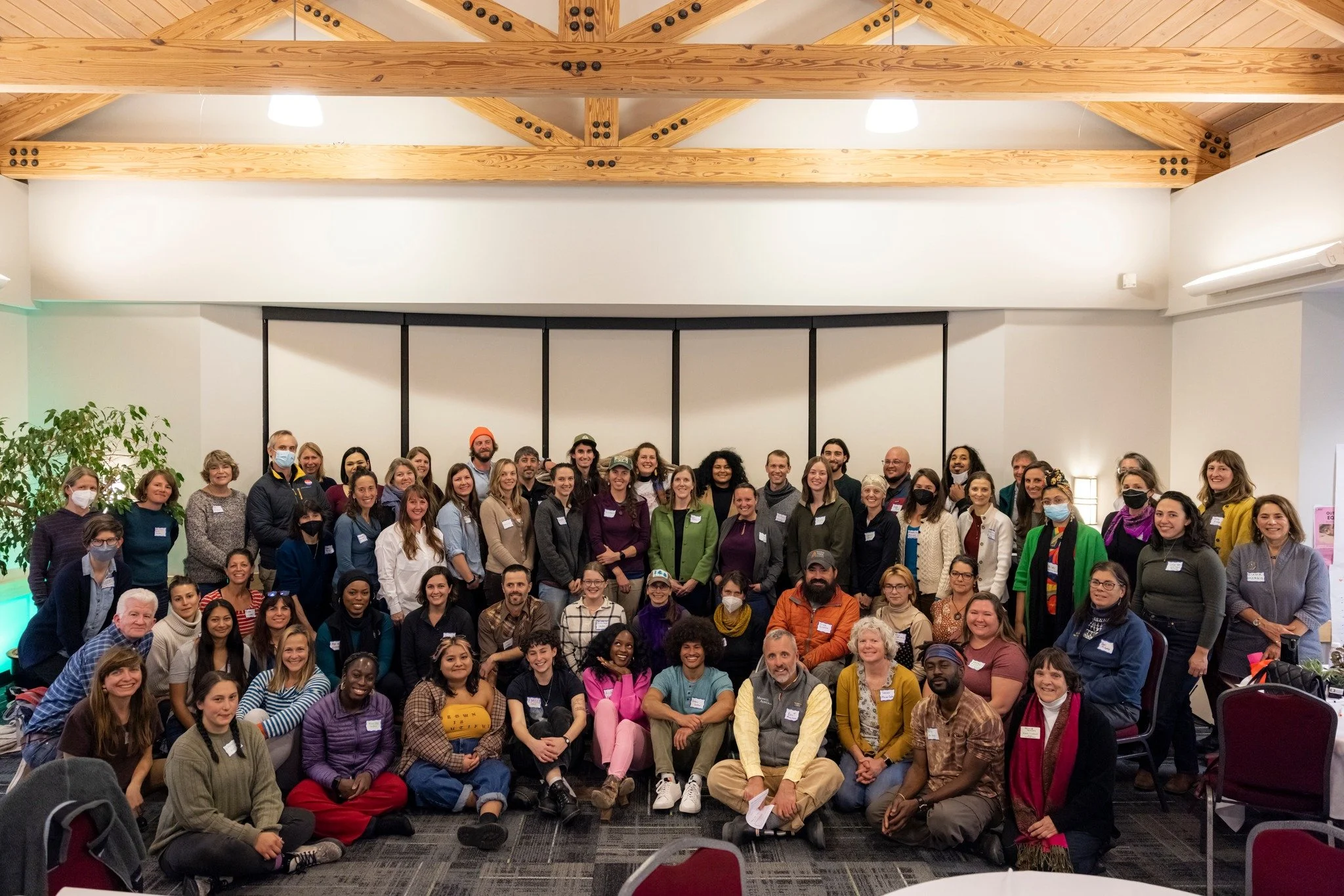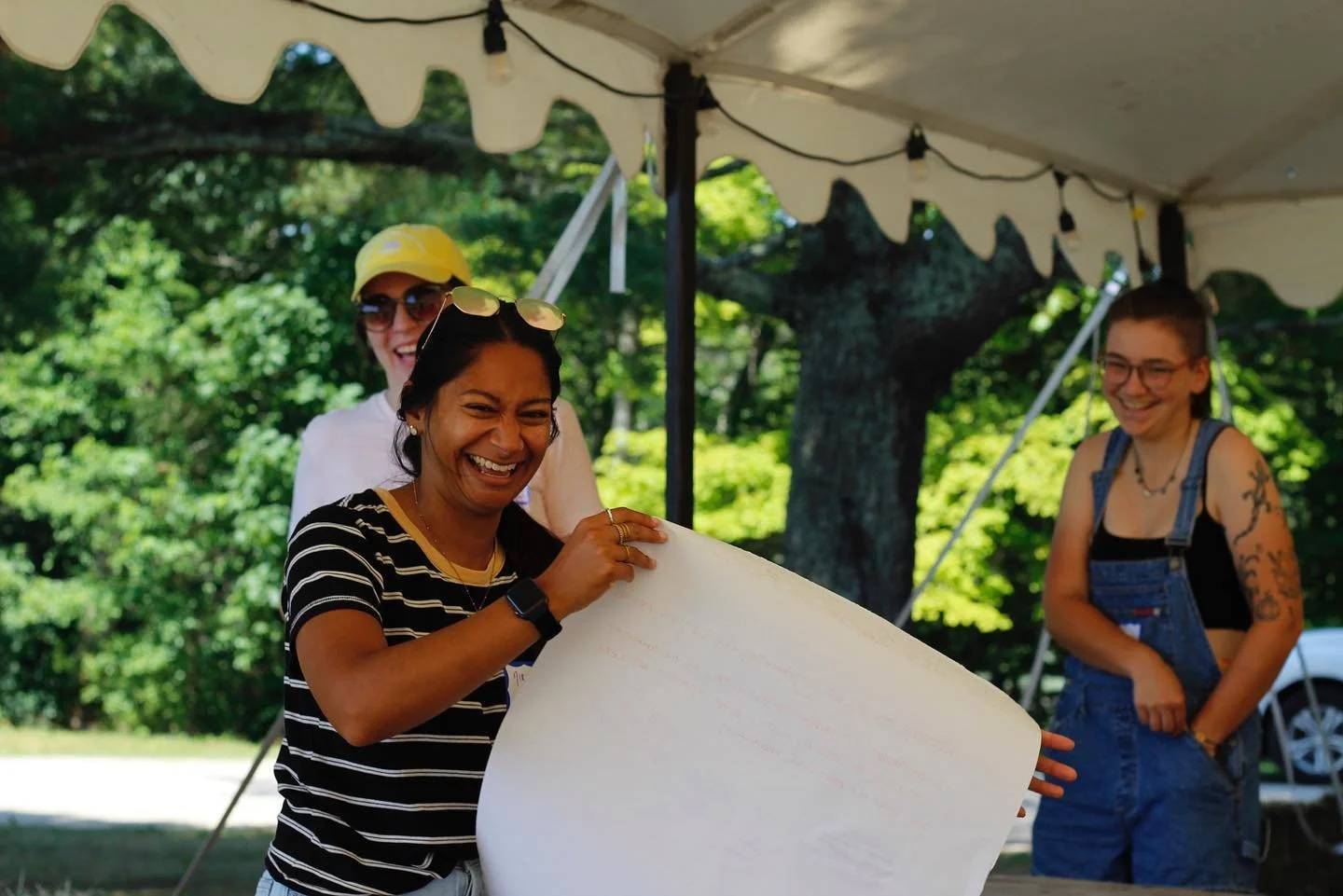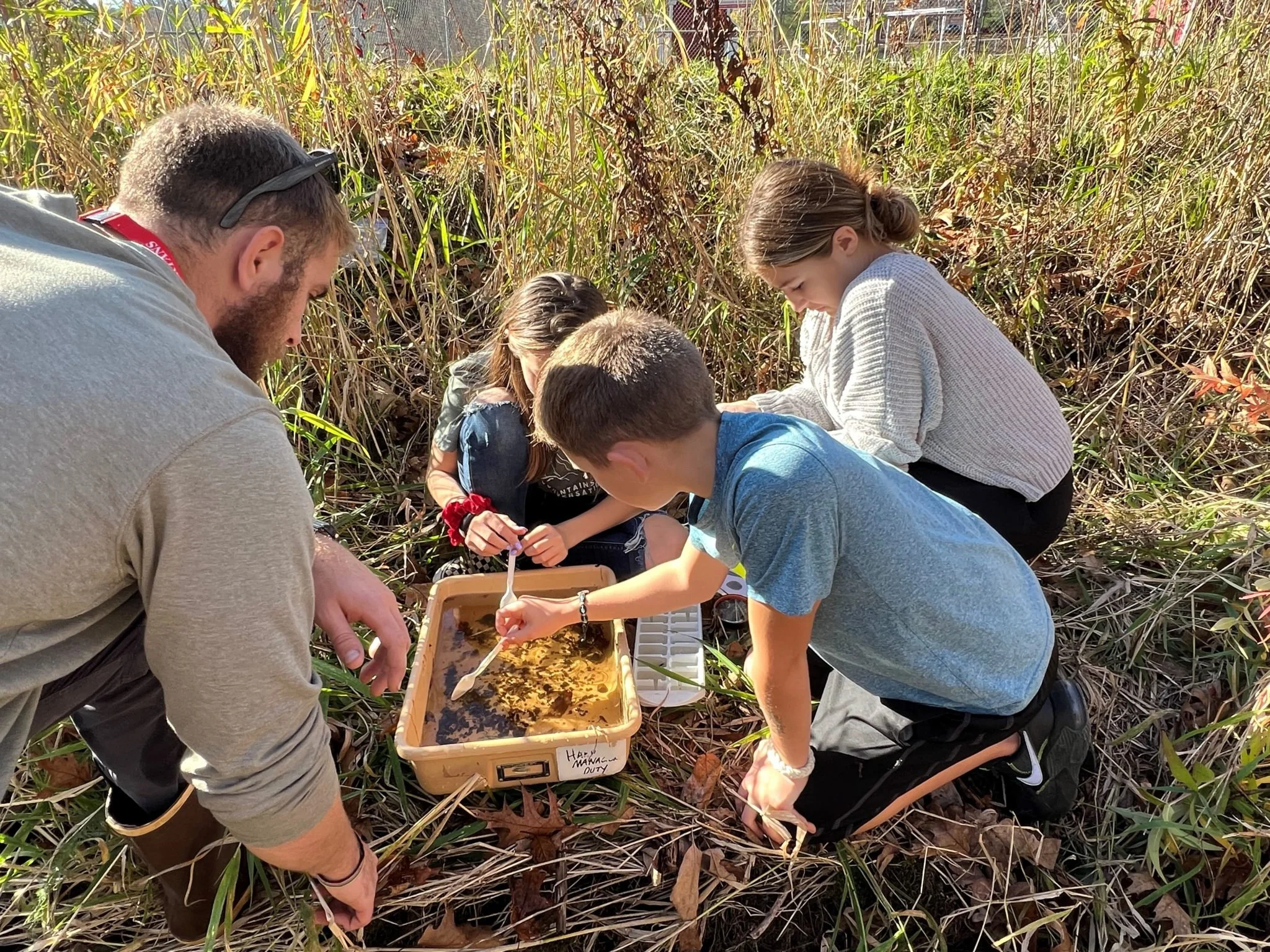Nature Based Education Consortium: Ensuring Equitable Access to Maine’s Outdoor Spaces
Eighty-nine percent of Maine is forest, yet 84% of people of color in the state live in nature deprived areas, according to a report by the Center for American Progress. Plus, historically, BIPOC, LGBTQ+, disabled, immigrant, and low-income communities have been excluded from outdoor spaces, leaving many Mainers cut off from the natural beauty that surrounds them.
“Outdoor spaces seem to be reserved for white folks…who have the means to buy all of the equipment to be able to experience the outdoors, skiing or fly fishing, or whatever,” says Samaa Abdurraqib, PhD, Executive Director of Maine Humanities Council, adding that Black and Brown folks often don’t feel comfortable outdoors. “It’s not safe.”
2022 Convening. Photo courtesy Micheli Oliver.
In 2018 a visionary group of about 20 outdoor learning leaders took action to try and change that. Together they founded the Nature Based Education Consortium (NBEC), to promote safer, more equitable access to the outdoors and expand opportunities for nature-based learning. Today, NBEC is a collaborative, multi-generational network made up of students, young adults, educators, outdoor learning advocates, and community members across the state, who work together to dismantle systemic barriers so all Maine youth can learn outdoors.
Nathan Broaddus, NBEC’s Network Coordinator, describes the network as a “container for collaboration” that centers equity and allows everyone to have a voice, regardless of their race, age, or sector.
“In order to address those barriers, in order to change the system, we need to work beyond the scale of what's possible for any individual organization,” says Nathan. “The only way that we're going to get there is through collaboration.”
The network has grown to around 100 participants over the past six years, including those who are engaged monthly through one of its four working groups:
The Climate Education Advocacy working group raises awareness of the impacts of climate change. The group succeeded in mobilizing more than 100 students and educators to create a Climate Education Bill (LD 1902), which passed in April 2022. Included in the bill is a grant program so schools and school districts can partner with community-based organizations for climate education professional development.
The Local Outdoor Learning Advocacy working group, which grew out of efforts to encourage safe learning at the start of the COVID-19 pandemic, supports systems change at the local level by working to influence school district and school leaders.
The Stories for Change working group collects and shares multimedia stories and images to transform the narrative around who is spending time outside in Maine, focusing on BIPOC, LGBTQ+, low-income, disabled, immigrant, and other communities that have been historically excluded from outdoor spaces.
The Outdoor Equity working group explores shifting power and resources within the environmental and outdoor sectors.
Nathan says that working groups, which take concrete steps toward achieving the network’s goals, make all of their decisions through a consensus model. Participants choose and design the initiatives, as well as elect the group’s co-chairs and steering committee representatives.
Nirmala-Stories for Change Retreat. Photo courtesy Nature Based Education Consortium.
“NBEC continues to play a critical role as a backbone to the network, a convener of important conversations, a coordinator of policy and advocacy action, and a key facilitator in building a more inclusive and representative sector in Maine,” says Tom Boutureira, Sewall’s Community Partner for Nature Based Education. Since 2019, Sewall has awarded five Healthy People Healthy Places grants to NBEC.
NBEC also co-developed the Outdoor Equity Fund with Maine Initiatives, to improve safe, equitable access to outdoor space and nature-based learning. Through this fund, which is administered using a participatory grantmaking approach, 10+ BIPOC outdoor groups receive $10,000 per year for three years, and become part of a network through which they can connect, share knowledge, and access additional resources.
Maine Audubon and Sanford Middle School students. Photo courtesy Nature Based Education Consortium.
Another collaborative effort is Teach ME Outside–a project of the Nature Based Education Consortium, Maine Environmental Education Association, and the Maine Math and Science Alliance–which facilitates knowledge sharing, professional development, and networking, to increase schools’ ability to implement community-based environmental learning opportunities.
Coming up this fall is NBEC’s 2024 Convening, which will bring together network participants to engage in collective decision-making about its focus and direction. They’ll tackle questions like, “How do we make this system better? How do we improve access to outdoor learning from Maine youth? What can I bring? Where are there opportunities for collaboration?”
Nathan says that while there’s a “long arc towards change,” enthusiasm for outdoor learning has continued to build over the past six years, inspiring Maine’s Department of Education to devote more than $20 million to fund its Outdoor Learning Initiative.
“Collective voice really does have an impact.”



